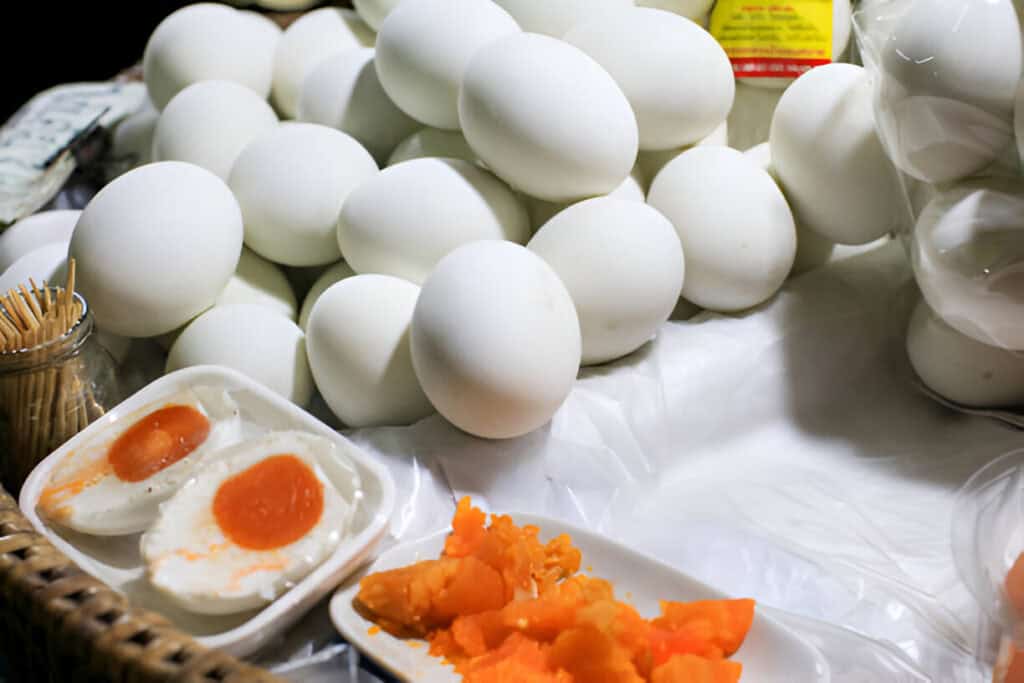Why Aren’t Duck Eggs Commonly Found in Stores? The Truth Behind the Shortage

The other day, I found myself lingering a little longer than usual in the egg aisle at my neighborhood grocery store. Rows upon rows of chicken eggs stretched before me—brown, white, organic, pasture-raised—you name it. But something was missing. No duck eggs. Not a single one.
It struck me as odd, especially since I’ve had duck eggs before, and let me tell you—they’re rich, velvety, and downright decadent when baked into a cake or scrambled into breakfast. That got me thinking: why don’t more stores sell them?
Have you ever noticed the same thing? Duck eggs seem to be this culinary secret reserved for farmers’ markets or specialty food shops, but never part of your average weekly grocery haul. Is it supply? Is it demand? Or is there something else going on behind the scenes that keeps these luxurious little orbs out of reach? Trust me, the rabbit hole goes deeper than you might think.
In this post, we’ll crack open the real reasons duck eggs are so rare in mainstream markets. From farming logistics to food regulations to consumer perception, you’ll get a clearer picture of what’s really going on. By the end, you’ll know exactly why duck eggs remain the underdog of the egg world—and whether they’re worth tracking down.
The Challenge of Duck Egg Production
First, let’s talk numbers. Chickens are the rockstars of the egg world—they lay tons of eggs with relatively little hassle. Ducks, on the other hand, are a bit more high-maintenance when it comes to egg production. While ducks do lay eggs, their output is much lower than chickens. Where a chicken might produce one egg a day, a duck will typically lay only four or five eggs per week. This difference in volume directly impacts the availability of duck eggs for mass market distribution.
Duck Egg Production vs. Chicken Egg Production
| Factor | Duck Eggs | Chicken Eggs |
| Eggs per week | 4-5 eggs | 6-7 eggs |
| Egg size | Larger than chicken eggs | Standard medium to large |
| Eggshell thickness | Thicker, harder | Thinner, more fragile |
| Egg flavor | Rich, earthy | Mild, neutral |
The lower egg output makes it harder for producers to meet the steady demand of grocery stores, making duck eggs less attractive for mass farming. When it comes to getting products on the shelves in the quantities consumers expect, consistency is key. Ducks just can’t compete with chickens in that department.
The Supply Chain and Retail Hurdles

Even if a farm manages to raise ducks and collect their eggs, there’s still the issue of distribution. Duck eggs aren’t as widely available as chicken eggs, so the supply chain for these eggs isn’t as developed. For a grocery store to carry duck eggs, they need to ensure there’s enough demand to justify the space and logistics. Duck eggs also have a shorter shelf life compared to chicken eggs, which means they require more careful handling and faster turnover to prevent spoilage.
Furthermore, duck eggs are often considered a niche item. There are a few enthusiastic groups—health-conscious consumers, foodies, and some cultures that traditionally consume duck eggs—who seek them out, but these groups are relatively small in comparison to the mass-market demand for chicken eggs. Stores often shy away from stocking products that may not sell quickly enough to justify the effort and expense involved.
Sourcing Duck Eggs
Finding duck eggs can feel like a treasure hunt, especially since they’re not as common as chicken eggs. While most big grocery chains don’t carry them, some specialty or natural food stores do. Look in the refrigerated egg section, or ask a store associate—they’re often kept near the organic or exotic products.
When choosing fresh duck eggs, pay attention to the shell. It should be clean, smooth, and free of cracks. A slight powdery coating is normal and helps preserve freshness. Check the packaging date if available, and always give them a quick sniff at home before use.
You can also support local farms or shop at farmers’ markets. Many small-scale farms raise ducks more sustainably than commercial operations.
| Source | Availability | Benefits |
| Farmers’ Market | High in season | Fresh, local, eco-friendly |
| Natural Grocery | Moderate | Convenient, labeled clearly |
| Online Retailers | Year-round | Wide selection, farm-direct |
Why Aren’t Duck Eggs More Popular?
While there’s a market for duck eggs, it’s still niche. Many people are simply unfamiliar with the unique qualities of duck eggs and their culinary benefits. Duck eggs are prized for their richer taste, thicker whites, and firmer yolks compared to chicken eggs. In fact, duck eggs are a favorite among bakers because they produce fluffier cakes and more decadent baked goods due to their higher fat content.
But many consumers are hesitant to try something new. Duck eggs can be a little more intimidating to cook with, and the idea of them being “different” from chicken eggs might deter some. Plus, for those with allergies, duck eggs aren’t always a safe alternative to chicken eggs. The protein structure in duck eggs can sometimes cause allergic reactions for those sensitive to egg proteins, making them less appealing for certain people.
| Read: How to Start a Duck Egg CSA (Community Supported Agriculture) Program |
The Unspoken Cost of Duck Eggs
Another consideration is the cost. Duck eggs are often priced higher than chicken eggs, which makes them less accessible for the average consumer. Between the increased labor required to care for ducks and the lower production numbers, duck eggs naturally come at a higher price. As a result, many people simply opt for the more affordable chicken egg, even if they’re aware of the benefits of duck eggs.
Additionally, because duck eggs are not as widely available in retail outlets, they often end up being sold directly from small farms or through specialty markets. You can find them at farmer’s markets or through online retailers, but these eggs aren’t always easy to find for the average shopper. The small-scale production further drives up prices, making them more of a luxury item.
| Read on: Do Ducks Lay Unfertilized Eggs? Here’s What You Need to Know |
The Growing Interest in Duck Eggs
Despite the challenges, there’s a growing interest in duck eggs. In recent years, more people have become curious about the culinary possibilities of duck eggs, and their nutritional benefits have sparked interest in health-conscious communities. Rich in omega-3 fatty acids, protein, and vitamins, duck eggs have been hailed as a superfood in certain circles. As more people start to seek out alternative protein sources and explore the world of specialty foods, duck eggs may find their way into more homes.
Conclusion
In conclusion, duck eggs aren’t commonly found in stores primarily due to the combination of low production rates, supply chain limitations, and higher costs. While they have undeniable culinary and nutritional appeal, chicken eggs are still the dominant force in the egg market due to their accessibility and affordability.
However, if you’re lucky enough to stumble upon duck eggs at your local farmers’ market or in specialty stores, you’re in for a treat. They may not be in every cart just yet, but the demand is certainly growing. The future of duck eggs might just be as bright as their rich, golden yolks.
Wouldn’t it be something if, one day, duck eggs weren’t so hard to find on the shelf?






